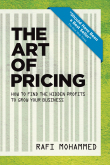The Gray Market: Good or Bad for Consumers?
On Monday, the Supreme Court in essence admitted that it was a hung jury. What major societal issue confounded these revered U.S. legal scholars? Death penalty? Important public policy issue? A fundamental constitutional amendment? Nope. The key challenge boiled down to price…of course!
Omega Watches (a division of Swatch Group AG) has sued Costco over its gray market buying and selling practices. As most multi-national companies do, Omega sells its watches at different prices around the world based on market conditions. Costco noticed and exploited these price differences. The warehouse store purchased Omega watches in low priced areas and then resold them in the U.S. for $1,200, which is $700 lower than Omega’s $1,900 suggested retail price. Omega sued Costco to prevent this gray market arbitrage.
Given the Supreme Court’s deadlock, the current status of this dispute reverts back to what the San Francisco-based 9th U.S. Circuit Court of Appeals decided: Costco’s gray market purchasing and reselling is illegal. By the way, President Obama’s solicitor general is siding with Omega on this matter.
While I won’t get into the legal details, my initial feelings towards Omega are, as they are apt to say in New Orleans, “Laissez Les Bon Temps Roulez” (let the good times roll). Welcome to capitalism – this type of arbitrage is a common risk that companies take when implementing geographic pricing. Once a consumer purchases a product, why should the initial seller have the right to block or dictate the price of a resale? I have previously made a similar argument on why scalping laws are ridiculous. If Omega wants to thwart resale, they should clearly mark on their packaging that the watch is made for sale in a specific country (which, even if the same watch, may lose luster for picky U.S. consumers) or make the warranty valid only in the intended sale country.
Now for the flip argument – I spoke with a friend who is a public policy economist for his take on this case and he had a differing opinion. Public policy economists focus on whether a policy enhances consumer welfare (answering the basic question of: “are consumers better off?”). Remember, the goal of differential pricing is to sell to as many customers as possible by offering different prices to different customers for the same product. He made the analogy to pharmaceuticals – it is better for society if pharma companies can sell life-saving (or enhancing) drugs in poorer countries at a lower price. While Omega watches are hardly a life essential, his point is clear: geographic pricing allows more people to reap the benefits of a product. And since an Omega watch is not critical to life, if U.S. customers don’t like its pricing practices, they can simply buy a different watch. How many of you are going to say, “My life is terrible because I don’t own an Omega watch?”
I would love to hear your thoughts on this interesting public policy pricing issue!
Readers' Comments on This Blog Entry
You also need to look at the distribution channel. Did Costco buy the lower priced watches from retail outlets or did the get them through a country distributor? Distributors in different countries will get different wholesale prices based on their agreement to invest in marketing, advertising, etc. If Costco bought from a distributor then Omega's issue is with the distributor - not Costco. Costco also uses these type of products to bring in more customers. I know of a few consumer companies that have gone into Costco stores and bought out their entire inventory in order to thwart the problem.





Agreed. Good for Costco and their customers. Don't feel bad for Omega watches. The drug argument does not hold water. Nobody needs a watch to survive.